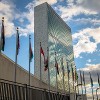IIASA News
For more news, follow IIASA on Twitter
2022
Health fears can increase pandemic isolation habits in older Europeans
A new study has found that older Europeans are more likely to stick to pandemic rules if they think they are unhealthier than they actually are. More
How circular waste management systems can benefit the environment
The increasing amounts of municipal solid waste and ineffective waste management systems threaten the environment and contribute to climate warming, yet the waste sector is often neglected in discussions about climate change and air pollution. A new IIASA-led study shows, for the first time, how circular waste management systems can help to effectively curb emissions of greenhouse gases and air pollutants. More
2021
Launch of the Northern African Applied Systems Analysis Centre
In collaboration with the Egyptian Academy of Scientific Research and Technology and the Institute of National Planning, IIASA is proud to announce the launch of the Northern African Applied Systems Analysis Center (NAASAC). More
How we measure the effects of methane matters for climate policy
How effective is the promotion of low-meat diets at reducing greenhouse gas emissions compared to carbon pricing when the effectiveness of mitigation policies is measured against methane’s long-term behavior? An international team of researchers explored how focusing either on the short- or long-term warming effects of methane can affect climate mitigation policies and dietary transitions in agriculture. More
Exploring the link between access to electricity and fertility
Access to electricity and modern cooking fuels, especially for women in the Global South, leads to time savings in the home, improved health, and better access to information, which in turn increase the wellbeing of women and allow them to make informed reproductive choices, according to a new study just published in Nature Sustainability. More
UN General Assembly proclaims 2022 the International Year of Basic Sciences for Sustainable Development
We need more basic sciences to achieve Agenda 2030 and its 17 Sustainable Development Goals (SDGs). This is the message sent to the world by the United Nations General Assembly on 2 December 2021 when Member States approved the resolution promulgating 2022 as the International Year of Basic Sciences for Sustainable Development (IYBSSD2022). More
A package of policies can help smallholder farmers adapt to a changing climate
A project by researchers from Princeton University and IIASA investigated how different climate scenarios and policy interventions could affect smallholder farmers in Nepal who stand to lose up to a quarter of their income by 2050 due to the effects of climate change. More
Climate action can lessen poverty and inequality worldwide
Climate change disproportionately affects the world’s most vulnerable populations. Not only are these effects compounding and magnifying existing inequalities, but the impacts will increase in severity over time, affecting both current and future generations. A new international study shows that the redistribution of revenues from a carbon tax can promote equity and protect marginalized populations. More
Why we must avoid temperature overshoot
A new international study coordinated by IIASA shows how near-term mitigation can help to prevent an overshoot in global temperatures, thereby reducing climate risks and bringing long-term economic gains. More
Exploring pathways to reduce the economic and environmental risks of climate change
Allowing global temperatures to rise beyond maximum thresholds and then trying to bring them back down again through mitigation strategies is risky. A new study by an international team of researchers explored the physical and macroeconomic impacts associated with mitigation pathways with different levels of temperature overshoot. More
Crowdsourcing data to monitor progress on the SDGs
Monitoring progress on our way to successfully achieving the Sustainable Development Goals (SDGs) is key to their achievement, but there are significant data gaps that make this crucial exercise difficult. A new IIASA-led study explored the use of a citizen science tool known as Picture Pile to see how it could contribute to SDG monitoring. More
Two IIASA stalwarts honored with lifetime achievement awards
Internationally renowned IIASA researchers GuentherFischer and Nebojsa Nakicenovic were the first to be honored with the newly established IIASA Lifetime Achievement Award at Monday night’s public lecture co-organized by IIASA and the Austrian Academy of Sciences. More
IIASA celebrates 12 researchers on Highly Cited Researchers 2021 List
IIASA is proud to announce that 12 researchers from across various IIASA programs have been named on the annual Highly Cited Researchers™ 2021 list from Clarivate. More
Agriculture and conservation objectives do not have to be at odds
Crop and livestock production are among the main drivers of biodiversity loss globally. Due to the ever-increasing demand of land for food production, reverting global biodiversity decline and feeding the world is one of the greatest challenges of our time. A new study finds that integrating food production and biodiversity conservation within a single spatial planning framework can minimize these trade-offs to the benefit of both nature and people. More
How free trade can prevent hunger caused by climate change
A new IIASA-led policy brief highlights the need to consider climate change adaptation in global trade agendas to avoid jeopardizing the achievement of UN Sustainable Development Goal 2 on Zero Hunger. More
A climate policy framework to deal with existential climate risk
As the impacts of climate change become more severe and limits to adaptation draw near, vulnerable communities will need different kinds of finance to build resilience and transform how they protect themselves. Work by IIASA researchers has culminated in a new policy brief, which lays out a finance framework for such climate risk and provides relevant model insight to inform international debates around adaptation and Loss and Damage. More
Mapping foodscapes to future-proof global food production systems
A project to build a map of the world’s diverse food production systems and their dependencies is helping form a better understanding of the crucial elements and necessary transformative actions that govern agricultural systems, now and in the future. More
Cutting ammonia emissions is a cost-effective way to prevent air pollution deaths
Tackling pollution from the emission of nitrogen compounds, particularly ammonia, could reduce many of the 23.3 million years of life that were lost prematurely across the world in 2013 due to nitrogen-related air pollution, an international study led by Chinese scientists has discovered using a modeling framework, including the IIASA GAINS model. More
Global climate change impacts on crops expected within 10 years
Climate change may affect the production of maize (corn) and wheat by 2030 if current trends continue, according to a new international study that included researchers from IIASA, NASA, and the Potsdam Institute for Climate Impact Research (PIK). Maize crop yields are projected to decline by 24%, while wheat could potentially see growth of about 17%. More
How recovery from COVID-19 and climate policies might affect the use of “clean” cooking fuels
Replacing polluting cooking fuels with clean-burning ones can save lives and reduce our impact on the environment. A group of IIASA researchers shows how recovery from the pandemic and climate mitigation policies might affect access to clean fuels. More
Addressing soaring energy prices and the energy transition in Europe
Europe is in the grip of an unprecedented energy crisis, leading some to call for a renewed focus on fossil fuels to supply much needed electricity for the coming winter months. A statement released by the Group of Chief Scientific Advisors to the European Commission however highlights that accelerating the transition to a low-carbon energy system is a solution that can actually lower energy prices in the long term. More
Road impacts on ecosystems in sub-Saharan Africa
Sub-Saharan Africa is developing rapidly. With growing economies and increased trade, major road infrastructure plans have been developed for the region, which also hosts some of the world’s most unique and diverse ecosystems. New research looked into how roads might impact ecosystems in the region. More
Joeri Rogelj receives ISC Early Career Scientist Award for Europe
IIASA researcher Joeri Rogelj received the Early Career Science Award for Europe during the International Science Council (ISC) General Assembly in Paris last week for his exceptional contribution to science, international scientific collaboration, and policy engagement. More
Exploring the global environmental impacts of China's growing demand for food
Ensuring China’s future food security will have huge environmental impacts, both domestically and globally. A study by IIASA researchers and Chinese colleagues shows that carefully designed policies across the whole of China’s food system, including international trade, are crucial to ensuring that future demand can be satisfied without destroying the environment. More
How recovery from COVID-19’s impact on energy demand could help meet climate targets
The pandemic-related drop in greenhouse gas emissions in 2020 was likely the largest on record in a single year, but how our recovery might affect future emissions is less clear. New modeling examines alternative scenarios and how they could impact climate mitigation targets. More
Achieving just transitions to a net-zero world
Only a minority of the global population currently enjoy high levels of wellbeing, while many are experiencing multidimensional poverty. A new IIASA strategic initiative – JustTrans4All – aims to improve our understanding of how to make the needed transitions more just. More
Where we went wrong in tracking COVID-19 and how to fix it
The COVID-19 pandemic has made painfully clear that our global infectious disease monitoring system is not up to the task. Report after report points to missed opportunities for detecting and acting on the outbreak’s early signs and the devastating resulting loss of life. More
Global partnership to support citizen science for the SDGs
The Global Citizen Science Partnership is a network-of-networks that aims to advance the use of citizen science to support the monitoring and implementation of the UN Sustainable Development Goals (SDGs). More
Unleashing science: delivering missions for sustainability
A major qualitative and quantitative step-change is needed in science to support critical societal transformations towards a more sustainable, equitable, and resilient future. IIASA Director General Albert van Jaarsveld contributed to a new report published by the International Science Council (ISC), advocating for a concerted effort by the global science community to step up to the challenge. More
Future prosperity in China is unlikely to be hindered by population aging
New research on China suggests that declining birth rates and an aging population might not hinder future prosperity when associated with better education of the young. More
The kids are not alright
Children are to face disproportionate increases in lifetime extreme event exposure – especially in low-income countries, according to new research by an international group of scientists. More
To solve Brazil’s energy and food crisis: store more water
Storing greater amounts of water in Brazil’s reservoirs could increase precipitation and river flow, alleviating the water and energy supply crisis in Brazil. More
Balancing food security and nitrogen use
Environmental targets to limit excess nitrogen require the large-scale deployment of dedicated nitrogen mitigation strategies to avoid a strong increase in the risk of food insecurity. Without these measures, the amount of dietary energy available to people would be greatly reduced, which would in turn lead to high food prices and an increase in the number of undernourished people. More
Putting a price on climate change
The social cost of carbon dioxide is one of the most influential indicators of climate change as it allows us to estimate the cost of greenhouse gas emissions to humanity. A new study looks back on how ten years of scientific advancements have influenced such estimates, and explores how to resolve some of the most important outstanding gaps in existing models. More
How much energy do we need to achieve a decent life for all?
For many, an increase in living standards would require an increase in energy provision. At the same time, meeting current climate goals under the Paris Agreement would benefit from lower energy use. IIASA researchers have assessed how much energy is needed to provide the global poor with a decent life and have found that this can be reconciled with efforts to meet climate targets. More
Building fairness into decision making
The fairSTREAM project just launched under the auspices of the IIASA Strategic Initiatives Program, aims to develop and demonstrate a co-production methodology for including equity and justice (fairness) alongside efficiency in developing sustainable policy options across the food-water-biodiversity nexus. More
Research reveals location and intensity of global threats to biodiversity
Using a novel modeling approach, new research published in Nature Ecology and Evolution reveals the location and intensity of key threats to biodiversity on land and identifies priority areas across the world to help inform conservation decision making at national and local levels. More
Are we on track to end world hunger?
IIASA researchers have contributed to a study that provides a new model to monitor and predict food insecurity in the coming decade. It finds that while overall global levels of food insecurity are set to decrease an increase is implied for lower income countries. More
IIASA Deputy Director General appointed to the Global Energy International Award Committee
IIASA Deputy Director for Science Leena Srivastava has been appointed as one of 20 world renowned energy experts who will select winners of the prestigious annual Global Energy Prize. More
Meeting biodiversity, climate, and water objectives through integrated strategies
We are collectively failing to conserve the world’s biodiversity and to mobilize natural solutions to help curb global warming. A new study carried out by the Nature Map Consortium, shows that managing a strategically placed 30% of land for conservation could safeguard 70% of all considered terrestrial plant and vertebrate animal species, while simultaneously conserving more than 62% of the world’s above and below ground vulnerable carbon, and 68% of all clean water. More
IIASA science supports the European Green Deal
The European Commission (EC) has prepared a set of proposals revising EU climate, energy, and transport-related legislation, the so-called 'Fit for 55 package', aiming to deliver the EU's 2030 climate target on its way to climate neutrality in 2050. IIASA research is part of the scientific backbone that underlies the strategies laid out in the package. More
An action agenda for Africa’s electricity sector
A new scientific article outlines how to undertake the much needed expansion and modernization of Africa’s electricity sector. The article highlights the crucial role that international partnerships such as the Sustainable Energy for All Initiative have to play in achieving this goal. More
Achieving equitable access to energy in a changing climate
Access to modern, reliable, and affordable energy services is a must for development and ensuring a decent quality of life. IIASA researchers used a novel bottom-up approach to analyze how access to energy services may evolve over time under different scenarios of socioeconomic growth and policy scenarios that meet climate mitigation goals. More
How crushed rocks can help capture CO2
IIASA researchers and international colleagues explored the potential of using finely ground rock to help with the removal of CO2 from the atmosphere on the road to achieving net-zero emissions and keeping global warming below 1.5°C. More
Inequity in the air of India
Air pollution in India is generated more by the wealthy, while the poor suffer most of the health impact, according to a study by five IIASA researchers published in Nature Sustainability. More
Informing policy for long-term global food security
More than 820 million people in the world don’t have enough to eat, while climate change and increasing competition for land and water are further raising concerns about the future balance between food demand and supply. The results of a new IIASA-led study can be used to benchmark global food security projections and inform policy analysis and public debate on the future of food. More
The Indus basin: untapped potential for long-term energy storage
Hydropower has massive potential as a source of clean electricity, and the Indus basin can be a key player in fulfilling long-term energy storage demands across Africa, Asia, Europe, and the Middle East. IIASA researchers explored the role the Indus basin could play to support global sustainable development. More
Tracking COVID-19 across Europe
According to the World Health Organization, a third wave of COVID infections is now all but inevitable in Europe. A COVID tracker developed by IIASA researcher Asjad Naqvi, aims to identify, collect, and collate various official regional datasets for European countries, while also combining and homogenizing the data to help researchers and policymakers explore how the virus spreads. More
Closing knowledge gaps for sustainable agriculture
IIASA is part of a project funded under the Belmont Forum’s joint Collaborative Research Action on Pathways to Sustainability to develop and apply an indicator system for measuring sustainability in the agricultural sector that will close existing knowledge gaps and facilitate decision making for more sustainable agricultural production. More
Dealing with global carbon debt
As atmospheric concentrations of CO2 continue to rise, we are putting future generations at risk of having to deal with a massive carbon debt. IIASA researchers and international colleagues are calling for immediate action to establish responsibility for carbon debt by implementing carbon removal obligations, for example, during the upcoming revision of the EU Emissions Trading Scheme. More
Platforms for profit and purpose
Digital platforms are changing the way we do business. IIASA has been involved in a six-year research project to understand the consequences of this shift, including how platforms can improve resilience in an uncertain world. More
Put people at the heart of energy transition policies, say EU Chief Scientific Advisors
Earlier this week, the European Commission’s Group of Chief Scientific Advisors (GCSA) delivered a Scientific Opinion on a systemic approach to the energy transition in Europe in which they provide policy recommendations on how the commission can contribute, accelerate, and facilitate the clean energy transition at the European and global level. More
Assessing the risks of human displacement in a changing climate
Each year, disasters force millions of people to move from their homes, with profound human and financial consequences, and climate change is making the situation worse. But recent work involving novel modeling and new data makes it possible to assess these risks and prepare for them. More
Russian forests are crucial to global climate mitigation
Russia is the world’s largest forest country. Being home to more than a fifth of forests globally, the country’s forests and forestry have enormous potential to contribute to making a global impact in terms of climate mitigation. A new study by IIASA researchers, Russian experts, and other international colleagues have produced new estimates of biomass contained in Russian forests, confirming a substantial increase over the last few decades. More
A novel energy storage solution featuring pipes and anchors
What do pipes and anchors have to do with storing energy? More than you might think! A new IIASA-led study explored the potential of a lesser known, but promising sustainable energy storage system called Buoyancy Energy Storage. More
What Facebook can tell us about dietary choices
Lifestyle changes for demand-side climate change mitigation is gaining more and more importance and attention. A new IIASA-led study set out to understand the full potential of behavior change and what drives such changes in people’s choices across the world using data from almost two billion Facebook profiles. More
Supporting sustainable development in the agricultural sector
IIASA, the Food and Agriculture Organization of the United Nations (FAO), and the Environmental System Research Institute (ESRI) are proud to announce the launch of version 4 of the Global Agro-Ecological Zones platform (GAEZ v4) – a research tool that supports sustainable development in the agricultural sector – on the occasion of the World Day to Combat Desertification and Drought. More
Finding pathways for sustainable development in Africa
A new project funded under the Belmont Forum’s joint Collaborative Research Action on Pathways to Sustainability will develop novel tools and capacities to understand and manage interlinkages between the Sustainable Development Goals (SDGs), and support sustainable development pathways for African countries, tailored to local capacities and priorities. More
Accessing the latest climate impact science just got easier
Do you have a clear picture of what science says about past and future impacts of climate change in your country? Do you know how this knowledge has been generated and how reliable it is? The newly released open climate impacts encyclopedia ISIpedia was designed to provide state-of-the-art climate impact information by translating the latest climate impact science into understandable and informative texts. More
Limiting climate risks for finance: Central banks and science publish scenarios
To improve climate related risk management in the financial sector and facilitate a smooth transition toward a sustainable economy, IIASA researchers joined forces with other scientists and a network of over 60 central banks and financial market supervisors to publish an updated set of scenarios. They show early greenhouse gas emissions reductions can minimize both physical and financial risk - in contrast, delayed action or no action would drive up costs. More
To achieve the SDGs, we need better data
IIASA researchers have contributed to a new global campaign that illustrates the centrality of data to sustainable development with a project that uses citizen science to monitor marine litter in Ghana for official UN Sustainable Development Goals reporting. More
Assessing the feasibility of transformation pathways for achieving the Paris Climate Agreement
What drives the feasibility of climate scenarios commonly reviewed by organizations like the Intergovernmental Panel on Climate Change (IPCC)? And can they actually be achieved in practice? A new systematic framework can help understand what to improve in the next generation of scenarios and explore how to make ambitious emission reductions possible by strengthening enabling conditions. More
New framework to enhance national climate action and achieve global goals
With the COP Climate conference in Glasgow only a few months away, the ambitions of the Paris Agreement and the importance of taking action at the national level to reach global climate goals is returning to the spotlight. IIASA researchers and colleagues have proposed a novel systematic and independent scenario framework that could help policymakers assess and compare climate policies and long-term strategies across countries to support coordinated global climate action. More
Mitigating emissions in the livestock production sector
The farming of livestock to feed the global appetite for animal products greatly contributes to global warming. A new study however shows that emission intensity per unit of animal protein produced from the sector has decreased globally over the past two decades due to greater production efficiency, raising questions around the extent to which methane emissions will change in the future and how we can better manage their negative impacts. More
Sebastian Poledna receives Complexity in Macroeconomics award
IIASA Acting Research Group Leader Sebastian Poledna has won a paper competition on the subject of complexity and macroeconomics, organized by the Rebuilding Macroeconomics (RM) Network. The network is funded by the Economic and Social Research Council (ESRC) in the UK, and hosted by the National Institute of Economic and Social Research (NIESR), which is the oldest independent economic research institute in the UK. More
Accounting for finance is key for climate mitigation pathways
A new study published in the journal Science, highlights the opportunity to complement current climate mitigation scenarios with scenarios that capture the interdependence among investors’ perception of future climate risk, the credibility of climate policies, and the allocation of investments across low- and high-carbon assets in the economy. More
Keywan Riahi appointed to ten-member group of the UN Secretary General
The United Nations Secretary-General, António Guterres, has appointed a new group of ten renowned experts including IIASA Energy, Climate, and Environment Program Director, Keywan Riahi, to support the UN Technology Facilitation Mechanism to bring science into the implementation of the Sustainable Development Goals (SDGs). More
Climate policies, transition risk, and financial stability
The way in which banks react to climate risks and uncertainty could impact financial stability as well as the world’s transition to a low-carbon economy. A new study by researchers from IIASA and the Vienna University of Economics and Business explored the role that banks’ expectations about climate-related risks will play in fostering or hindering an orderly low-carbon transition. More
Bringing the impact of nutrient imbalance to global attention
Through combining their expertise, four European Research Council (ERC) grantees have awoken the scientific community to what nutrient imbalances could mean for our planet, and for our species. Their findings could lead the world towards more accurate climate modeling, more equitable policymaking, and more sustainable food production. More
The economic benefits of air quality improvements in the Arctic
A new report released by the Organisation for Economic Co-operation and Development (OECD) assessed the biophysical and economic benefits of air pollution policies in Arctic Council countries. The analysis relied on a suite of modeling tools, including the IIASA GAINS model, to project the impacts of increasingly ambitious policy action up to 2050. More
Empowering citizens for successful energy transitions
The terms “co-creation” and “co-production”, which denote the possibility for laypeople to participate in decision-making processes that affect their lives, have been gaining popularity. A new IIASA-led study explored options for empowering citizens as a driver for moving from awareness about the need to transform energy systems to action and participation. More
IIASA researchers on the Reuters Hot List of climate scientists
No less than nine IIASA researchers have made it onto the Reuters Hot List – the media giant’s ranking of the world’s most influential climate scientists – with IIASA Energy, Climate, and Environment Program Director, Keywan Riahi, claiming the top spot. More
Conceptualizing “safe and just” for the future of the planet and its people
The Earth Commission laid out its approach to defining a “safe and just corridor for people and planet” in a paper published today in Earth’s Future. More
New oil palm map to inform policy and landscape-level planning
IIASA researchers have used Sentinel 1 satellite imagery from the European Space Agency to produce a map of the extent and year of detection of oil palm plantations in Indonesia, Malaysia, and Thailand that will help policymakers and other stakeholders understand trends in oil palm expansion to inform landscape-level planning. More
The value of cooperation for sustainable development in transboundary river basins
Can cooperation across sectors and countries help to achieve sustainable development? How do stakeholders in the Indus and Zambezi basins envision the future and how can they make that future a reality? IIASA researchers looked into these questions as part of a large-scale initiative with international partners. More
Is it worth investing in solar PV with batteries at home?
Solar energy is a clean, renewable source of electricity that could potentially play a significant part in fulfilling the world’s energy requirements, but there are still some challenges to fully capitalizing on this potential. Researchers looked into some of the issues that hamper the uptake of solar energy and proposed different policies to encourage the use of this technology. More
Strengthening water resources planning in East Africa
IIASA researchers worked with local stakeholders from the East African Community to explore and co-develop regional water scenarios that can enhance understanding of the up- and downstream water sector interactions in the extended Lake Victoria Basin to facilitate rational water resource planning. More
A new way to measure human wellbeing towards sustainability
The Sustainable Development Goals (SDGs) are a blueprint to achieve a better life for all and to ensure that no one is left behind. The partly overlapping and contradictory objectives of the SDGs can however make it difficult to assess overall progress. A group of researchers have proposed a new, tailor-made metric that measures development based on long-term human wellbeing. More
Sustainable water management key to scaling up bioenergy production
To avoid a substantial increase in water scarcity, biomass plantations for energy production need sustainable water management, a new study shows. More
Ending the war on the world
We must urgently transform our relationship with nature, according to a major new UN report. More
IIASA joins the Groundwater Solutions Initiative for Policy and Practice (GRIPP)
We are proud to announce that IIASA has joined GRIPP, a global partnership for sustainable groundwater management led by the International Water Management Institute to strengthen, expand, and connect current groundwater research and initiatives. More
Raising climate ambitions could save millions of lives
Adopting policies that are consistent with achieving the Paris Agreement and prioritize health, could annually save 6.4 million lives due to healthier diets, 1.6 million lives due to cleaner air, and 2.1 million lives due to increased physical activity, according to new research. More
Quality education essential to closing the growing global skills gap
With rapid educational expansion in many developing countries, much progress has been made in terms of access to education. According to a new IIASA-led study, being in school is however not the same as learning and this expansion in quantity may come at the expense of quality, with the possible negative implications of the current COVID-19 pandemic on schooling possibly exacerbating the situation. More
Advancing scientific cooperation on pandemic research
IIASA and the Russian Foundation for Basic Research (RFBR) are proud to announce the winners of their joint call for research proposals around the COVID-19 pandemic. More
Awards for outstanding young scientists
Four exceptional young scientists from the 2020 Young Scientists Summer Program (YSSP) have been recognized as YSSP awards finalists. Two will receive funding to continue their research projects at IIASA. More
How is the digitalization of daily life impacting climate change?
IIASA researcher Charlie Wilson has been awarded a European Research Council (ERC) grant to study how the digitalization of our everyday lives impacts climate change and to explore how it can be steered to help, rather than hinder climate action. More
Transformations within reach: Pathways to a sustainable and resilient world
It is clear that COVID-19 has drastically changed our world, but how can we use the lessons learnt to build a more resilient and sustainable future? The International Institute for Applied Systems Analysis (IIASA) and the International Science Council (ISC) have drawn on the combined strengths and expertise of the two organizations to help find a way forward. More
Advancing the science of citizen science
Citizen science is increasingly incorporated in research projects, as it has proved extremely effective in many aspects of research from collecting data to verifying information from remote sensing data in the field. A new book on citizen science offers practical support for implementing projects and addresses emerging topics around citizen science and artificial intelligence. More
Harnessing the power of crowd-driven artificial intelligence
The European Research Council (ERC) will fund the development of an innovative platform incorporating the IIASA crowdsourcing game Picture Pile. IIASA Strategic Initiatives Program Director Steffen Fritz will lead the project. More
Uncovering how grasslands changed our climate
Grasslands are managed worldwide to support livestock production, while remaining natural or semi-natural ones provide critical services that contribute to the wellbeing of both people and the planet. Human activities are however causing grasslands to become a source of greenhouse gas emissions rather than a carbon sink. A new study uncovered how grasslands used by humans have changed our climate over the last centuries. More
2020
Empowering women could help address climate change
Current and future damages of climate change depend greatly on the ability of affected populations to adapt to changing conditions. According to an international group of researchers, building capacity to adapt to such changes will require eradicating inequalities of many sorts, including gender. More
Working towards carbon neutrality in China
IIASA researchers contributed to a new report that argues for an integrated economy-wide decarbonization, in which China not only meets its carbon neutrality target, but also achieves a broader vision for growth and development. More
Cooperation across boundaries and sectors could boost sustainable development in South Asia
A new analysis of food, energy, water, and climate change in the Indus Basin shows how a cross-boundary and multi-sectoral perspective could lead to economic benefits and lower costs for all countries involved. More
Assessing the impacts of global climate change on population trends
The European Research Council (ERC) will fund groundbreaking research led by IIASA World Population Program Deputy Director Raya Muttarak, which will comprehensively address the impacts of climate change on population dynamics. More
Are people healthy enough to retire later?
While many people are now enjoying longer, healthier lives, current retirement ages are posing challenges for both policymakers and retirees. A new study looked into whether there is potential to increase the retirement age based on the relationship between working life expectancy and health aspects important for work ability for women and men in Europe. More
Pathways to sustainable land use and food systems
The findings of a new report by the Food, Agriculture, Biodiversity, Land-Use, and Energy (FABLE) Consortium, suggest that integrated strategies across food production, biodiversity, climate, and diets can meet the objectives of the Paris Agreement and the Sustainable Development Goals (SDGs). More
Monitoring biodiversity and ecosystems in Europe
IIASA is collaborating with 14 partner institutions from Belgium, Bulgaria, Estonia, Germany, the United Kingdom, the Netherlands, Portugal, and Spain on a new research project aimed at developing a transnational system for monitoring biodiversity and ecosystems in Europe. More
Informing policy for more resilient food systems in West Africa
Even before COVID-19, the threat of climate change was affecting the ability of West African food systems to deliver healthy, sustainable, and nutritious foods. In a recent paper published in Nature Food, an international team of researchers provide evidence-based policy recommendations to support West African governments in reforming food systems to make them more resilient. More
Strengthening the climate change scenario framework
Over the past decade, the climate change research community developed a scenario framework that combines alternative futures of climate and society to facilitate integrated research and consistent assessment to inform policy. An international team of researchers assessed how well this framework is working and what challenges it faces. More
Nebojsa Nakicenovic appointed to the Group of Chief Scientific Advisors to the European Commission
The European Commission’s Group of Chief Scientific Advisors contribute to the quality of EU legislation through the provision of independent scientific advice to the Commission. More
List of Highly Cited Researchers 2020 announced
We are proud to announce that several IIASA researchers have been named on the annual Highly Cited Researchers list from Clarivate. More
Tackling the growing challenge of urban air pollution
How can fast growing cities keep air pollution in check? A recent World Bank report highlighting IIASA research explores this tricky question, looking at the kinds of policies and actions cities have taken to tackle poor local air quality, thus providing lessons for other cities. More
Yoshihide Wada to receive prestigious Earth and space science award
IIASA Acting Water Program Director Yoshihide Wada has been awarded the American Geophysical Union’s James B. Macelwane Medal 2020, widely considered as the highest honor for early career scientists in the fields of Earth and space science. More
Carbon pricing could prompt greener, smarter post-COVID recovery
Countries across the globe have been struggling to deal with the impact of COVID-19 and the accompanying economic slowdown. As economies “build back better”, it may be an opportune time to introduce carbon pricing to tackle climate change while generating socioeconomic benefits, according to new interdisciplinary policy research by philosophers and economists. More
Combatting climate change – how to best use new technologies?
A new grant from the European Research Council (ERC) will fund an international research project on negative emissions technologies. IIASA Energy Program Director Keywan Riahi is one of the project leaders. More
Air pollution implications of re-shaping future energy pathways
Amid deep disruption and uncertainty caused by the COVID-19 pandemic, a surge in well-designed energy policies is essential in forging a resilient energy system equipped to meet global climate goals as well as air quality standards. More
Hotspots Explorer makes climate risk research accessible
IIASA, the United Nations Industrial Development Organisation, and the Global Environment Facility have launched an interactive online mapping tool that allows the public and policymakers to easily explore overlapping and interconnected climate risks around the world. More
Informing the next generation of biodiversity goals
According to an international team of researchers, a ‘safety net’ made up of multiple, interlinked and ambitious goals is needed to tackle nature’s alarming decline. More
A renewable solution to keep cool in a warming world
Month-on-month, year-on-year, the world continues to experience record high temperatures. In response to this and exacerbated by a growing global population, it is expected that air-conditioning demand will continue to rise. A new IIASA-led study explored the pros and cons of seawater air-conditioning as an alternative cooling solution. More
Fraction of COVID-19 recovery funds could boost climate efforts
Global stimulus plans for economic recovery after the pandemic could easily cover climate-friendly policies, suggests new study. More
Pinpointing high impact areas for ecosystem restoration
As the world focuses on the dual crises of climate change and biodiversity loss, a new landmark study pinpoints the ecosystems that should be restored for the biggest climate and biodiversity benefits at the lowest cost. According to the authors, restoration can potentially be 13 times more cost-effective when it takes place in the highest priority locations. More
Investment in conservation efforts needs to be stepped up
National governments have fallen well short of their conservation commitments under the global nature conservation treaty, the Convention on Biological Diversity. An international consortium of scientists has conducted a global review of area-based conservation efforts, including both protected areas and other effective area-based conservation measures. More
Global food production poses an increasing climate threat
According to the authors of a new study published in Nature, rising nitrous oxide emissions are putting reaching climate goals and the objectives of the Paris Agreement in jeopardy. More
Climate-friendly cooling to help ease global warming
A new IIASA-led study shows that coordinated international action on energy-efficient, climate-friendly cooling could avoid as much as 600 billion tonnes CO2 equivalent of greenhouse gas emissions in this century. More
Decent living for all does not have to cost the Earth
Global energy consumption in 2050 could be reduced to the levels of the 1960s and still provide a decent standard of living for a population three times larger, according to a new study. More
Achieving clean air for all is possible
Air pollution is currently the largest environmental risk factor for human health globally and can be linked to several million cases of premature deaths every year. A new study however shows that it is possible to achieve clean air worldwide with fundamental transformations of today’s practices in many sectors, supported by strong political will. More
Science and Art: Supporting transformations to sustainability
A unique IIASA report on science and art shows how partnerships between artists and scientists can support transformations to a more sustainable future. More
Advancing the accurate tracking of energy poverty
IIASA researchers have developed a novel measurement framework to track energy poverty that better aligns with the services people lack rather than capturing the mere absence of physical connections to a source of electricity. This alternative framework can aid better tracking of Sustainable Development Goal (SDG) 7 by virtue of its simplicity and sensitivity to the diversity in service conditions among the poor. More
COVID-19 could cause declines in life expectancy in 2020 in severely affected areas
A new analysis of period life expectancy around the world shows that the COVID-19 pandemic could cause a short-term decline in life expectancy in many regions of the world. More
Climate change triggers migration
Environmental hazards affect populations worldwide and can drive migration under specific conditions, especially in middle-income and agricultural countries. According to a new study, changes in temperature levels, increased rainfall variability, and rapid-onset disasters such as tropical storms play an important role in this regard. More
Bending the curve of biodiversity loss
Plant and animal species across the world are steadily disappearing due to human activity. A major new IIASA-led study suggests that without ambitious, integrated action combining conservation and restoration efforts with a transformation of the food system, turning the tide of biodiversity loss by 2050 or earlier will not be possible. More
Research Group Leadership
As part of the implementation of the new strategy IIASA has made some further research leadership appointments. The research group leaders in each Program will provide research oversight and management of their respective groups and facilitate the functioning of program directors. More
New leadership appointments to support strategic research objectives
In 2021, IIASA will embark on a new strategy, which will develop and apply systems science to support transformations to sustainability. Michael Kuhn and Steffen Fritz will join the scientific leadership team that will address the institute’s research priorities to ensure that program objectives are aligned with the new IIASA strategy and institute values. More
Evaluating the effectiveness of travel bans
With the reopening of flights during the summer holiday season in Europe, many countries have started to see an increase in COVID-19 infections. A new IIASA-led study sheds light on how COVID-19 spreads regionally and between countries, as well as on how effective governmental measures to curb the spread of the pandemic have been to date. More
Making comprehensive water resources modeling more accessible
A new large-scale, open source hydrological and water resources model developed at IIASA will support and enable different stakeholder groups and scientific communities to engage with a hydrological model and support their investigations. More
Free trade can prevent hunger caused by future shifts in climate patterns
An international team of researchers investigated the effects of trade on hunger in the world as a result of climate induced crop yield changes. The conclusion is encouraging: international trade can compensate for regional reductions in agricultural production and reduce hunger when protectionist measures and other barriers to trade are eliminated. More
Limiting CO2 emissions is not enough, methane must also be reduced
An international team of researchers working under the auspices of the Global Carbon Project has found that global methane emissions increased by 9% (or approximately 50 million tonnes) between 2000-2006 and 2017, and that manmade emissions are responsible for the majority of this increase. More
Jordan joins IIASA as a prospective member
The Hashemite Kingdom of Jordan has joined IIASA as a prospective member through the Royal Scientific Society of Jordan. More
When is someone old?
Populations around the world are living longer lives than was the norm just a few decades ago, presenting governments with significant challenges in terms of caring for their growing elderly populations. According to a new study published in PLOS ONE, understanding how to assess who is elderly is a crucial first step for our understanding of population aging. More
Innovations for sustainability in a post-pandemic future
The COVID-19 pandemic has thrust the world into turmoil and disrupted the status quo, but it is also providing opportunities for innovation in the way we live and work. According to the latest report released by The World in 2050 (TWI2050) initiative, the crisis can provide an opportunity to create sustainable societies with higher levels of wellbeing for all. More
Closing the gap: Citizen science to monitor sustainable development
Citizen science could help track progress towards all 17 UN Sustainable Development Goals (SDGs). An IIASA-led study, for the first time, comprehensively analyzed the current and potential contribution of citizen science data to monitor the SDGs at the indicator level. More
Planning for a growing elderly population
The fact that people are living longer lives represents one of the crowning achievements of the last century, but also requires careful planning on the part of governments. A new IIASA study investigated the prevalence of activity limitations among older adults in 23 low- and middle-income countries, to help policymakers prepare for the challenges associated with the world’s aging population. More
New scenarios to help global finance go green
A key role of central banks is to strive for financial stability. To assess climate destabilization risks, major central banks and supervisors plan to utilize a new set of climate scenarios developed by an international team of researchers. More
Earth Challenge 2020: Calling on citizens to help support global food supply
IIASA and the European Space Agency (ESA) in partnership with the Wilson Center, the Earth Day Network and the US State Department are providing citizens with an opportunity to get involved in one of the world’s most challenging problems: how to provide enough, high quality, nutritious food to the ever expanding global population. More
Matching-commitment agreements to incentivize climate action
Many countries are failing to comply with the non-binding commitments of the Paris Agreement, making it increasingly clear that we have to reconsider how to ensure collective action to limit global warming to less than 2°C above preindustrial levels. A new IIASA-led study supports a different approach to designing an international climate agreement that would incentivize countries to cooperate. More
Coronavirus: a wake-up call to strengthen the global food system
A new commentary in the journal One Earth highlights not only climate-related risks to the global food system, such as drought and floods, but also exposes the coronavirus pandemic as a shock to the system that has led to food crises in many parts of the world. To address the challenges of a globally interconnected food system, a systems approach is required. More
Homo sapiens literata - the brainpower for sustainable development
Universal education - particularly of women - has been a fundamental driver of human development and progress. The changes that education brings could also determine the future path of humanity, argues IIASA World Population Program Director Wolfgang Lutz in a new publication with the Pontifical Academy of Sciences. More
Making sense of climate scenarios: New toolkit available for decision makers
To make climate scenarios work for decision makers, an international team of researchers have developed a comprehensive interactive online platform. More
Building pathways to sustainability in a post-COVID world
IIASA and the International Science Council (ISC) have established a partnership combining the strengths and expertise of the two organizations to define and design sustainability pathways, through a multi-stakeholder dialogue, that will enable a more equitable post-COVID world. More
Research leadership appointments
In light of the new strategic plan that will become operational in 2021, IIASA has appointed four program directors to lead new research programs. Raya Muttarak, Keywan Riahi, Elena Rovenskaya, and Yoshihide Wada will form part of the scientific leadership that will address the institute’s research priorities to ensure that program objectives are aligned with the new IIASA strategy and institute values. More
Why are we still failing to stop deforestation?
While national and international efforts to reverse the trend of deforestation have multiplied in recent years, there is still no clear evidence to suggest that these initiatives are actually working. A new paper published in One Earth, calls for a radically different approach that focuses on our understanding of how individuals make their choices about forests and livelihoods. More
Game-changing technologies to transform food systems
According to new research, a pipeline of disruptive technologies could transform our food systems, ecosystems, and human health, but attention to the enabling environment is needed to realize their potential. More
Exploring the impacts of climate change on hydropower production
A new study by researchers from IIASA and China investigated the impacts of different levels of global warming on hydropower potential and found that this type of electricity generation benefits more from a 1.5°C than a 2°C climate scenario. More
Towards a new generation of vegetation models
Plants and vegetation play a critical role in supporting life on Earth, but there is still a lot of uncertainty in our understanding of how exactly they affect the global carbon cycle and ecosystem services. A new IIASA-led study explored the most important organizing principles that control vegetation behavior and how they can be used to improve vegetation models. More
Defining a safe and just space for people and planet
A new working group of the Earth Commission, comprising renowned scientists from institutions around the world including IIASA, will investigate future pathways of how humanity might develop sustainably to ensure a safe and just world for all. More
Can we estimate the time until the next recession?
As the world economy is falling into one of the biggest contractions of the last decades, a new study of economic recession patterns finds that the likelihood of a downturn was high even before the onset of the Coronavirus crisis. More
Five years after the Paris Agreement: The gap between promises and implementation
The results of a new study show that achieving the goals of the Paris Agreement will require a deep reduction in global greenhouse gas emissions, ideally by around 40% to 50% by 2030. More
A new approach to measuring inequalities in development
A new study by researchers from IIASA and Hong Kong University of Science and Technology for the first time systematically explored and compared the use of the Human Life Indicator as a viable alternative to the conventional Human Development Index as a means of measuring progress in development. More
New ERC grant to explore making pension policies more fair
The IIASA World Population Program has received a new grant from the European Research Council to explore how to make pension policies more equitable by identifying fair normal pension ages and ensuring new measures of population ageing are up-to-date. More
Economic recovery after shutdown could take up to three years
The coronavirus pandemic poses an enormous challenge for the domestic and global economy. Despite the measures taken by the Austrian government, the consequences of the lockdown and partial suspension of global trade flows will be felt for a long time. More
SAS and IIASA call for crowd-driven artificial intelligence to help track deforestation
On the 50th anniversary of Earth Day, SAS and IIASA join forces to transform crowdsourced knowledge into actionable intelligence to help protect the planet. More
Can sub-Saharan Africa achieve sustainable access to energy for all by 2030?
In 2019, the global population without access to electricity dipped below 1 billion for the first time. This progress has however been uneven, both across and within different regions. A new IIASA study shows that to ensure universal access to affordable, reliable, and modern electricity services by 2030 in sub-Saharan Africa, the pace of electrification must more than triple. More
Returning land to nature with high-yield farming
The expansion of farmlands to meet the growing food demand of the world’s ever expanding population places a heavy burden on natural ecosystems. A new IIASA study however shows that about half the land currently needed to grow food crops could be spared if attainable crop yields were achieved globally and crops were grown where they are most productive. More
IIASA-NERC collaborative research fellowships awarded
IIASA and the Natural Environment Research Council (NERC) have awarded three fellowships to support talented early career researchers in delivering challenging research and supporting collaboration between the two organizations. More
Reducing the risk to children’s health in flood-prone areas of India
Monsoon rainfall has become more unpredictable in India. Floods and droughts have become more common and pose multiple risks to human health and wellbeing, with children under five being particularly vulnerable. New research finds that more assistance needs to be provided to communities in flood-prone areas to protect children under five from undernutrition. More
Exploring the link between education and climate change
What are the most effective ways to achieve desired sustainable development outcomes across all aspects of wellbeing, and how might the pursuit of some of these goals affect progress toward others? A new study by an international team of researchers aims to address these questions to help understand possible synergies and tradeoffs among these goals. More
Smaller scale solutions needed for rapid progress towards emissions targets
Low-carbon technologies that are smaller scale, more affordable, and can be mass deployed are more likely to enable a faster transition to net-zero emissions, according to a new study by an international team of researchers. More
Slovak Republic re-establishes ties with IIASA
The Slovak Republic has rejoined IIASA as a national member with its membership supported through the Ministry of Education, Science, Research, and Sport, and the Slovak Committee for Cooperation with IIASA. More
COVID-19: Visualizing regional indicators for better decision making
As the COVID-19 pandemic sweeps across the globe, it is fast becoming clear that no one is exempt from its disruptive effects. IIASA researchers are working to visualize key demographic and socioeconomic information to help inform decisions by health professionals, governments, and policymakers to address the crisis. More
Planning for future water security in China
China’s fast economic growth and accompanying rise in food demand is driving an increase in water use for agriculture and industry, thus threatening the country’s water security. The findings of a new study underscore the value and potential of technological adoptions to help design targets and incentives for water scarcity mitigation measures. More
How can migration, workforce participation, and education balance the cost of aging in Europe?
New IIASA research shows that higher levels of education and increasing workforce participation in both migrant and local populations are needed to compensate for the negative economic impacts of aging populations in EU countries. More
India rejoins IIASA
Recognizing the mutual benefits of scientific collaboration in a broad field of activities of global concern and interest, India has rejoined IIASA as a full member through the Technology Information, Forecasting, and Assessment Council (TIFAC). More
Shedding light on how much carbon tropical forests can absorb
Tropical forest ecosystems are an important part of the global carbon cycle as they take up and store large amounts of CO2. It is however uncertain how much these forests’ ability to take up and store carbon differ between forests with high versus low species richness. New IIASA research sheds light on this question aiming to enhance our ability to predict tropical ecosystems’ strength as global carbon sinks. More
Rethinking mortality and how we plan for old age
Many people dream of comfortably living out their golden years. A new IIASA study however shows that older Europeans, and especially women, frequently underestimate how many years they have left, which could lead to costly decisions related to planning for their remaining life course. More
IIASA operational while taking coronavirus protective measures
In accordance with the Austrian government’s measures to prevent the spread of the coronavirus, COVID-19, IIASA premises in Laxenburg are closed. However, the institute remains operational via remote working. More
From climate change awareness to action
Awareness of climate change and its impacts is not enough to move people to action. New research on how people’s worldviews affect their perceptions and actions could help policymakers and activists reframe the discussion around climate change mitigation. More
Study identifies regional malnutrition clusters across India
Childhood malnutrition in India remains a major problem. A new study shows that the problem is concentrated in specific geographic areas, which could help policymakers working to address the issue. More
Containing methane and its contribution to global warming
Methane is a gas that deserves more attention in the climate debate as it contributes to almost half of human-made global warming in the short-term. A new IIASA study shows that it is possible to significantly contribute to reduced global warming through the implementation of available technology that limits methane release to the atmosphere. More
New systemic approach needed to tackle global challenges
Putting systemic thinking at the centre of policymaking will be essential to address global issues in an era of rapid and disruptive change, according to a new joint report by IIASA and the Organisation for Economic Co-operation and Development (OECD). More
Could water solve the renewable energy storage challenge?
Seasonally pumped hydropower storage could provide an affordable way to store renewable energy over the long-term, filling a much needed gap to support the transition to renewable energy, according to a new study from IIASA scientists. More
Systems analysis for a new Arctic
A major new IIASA report highlights new and emerging policy trends in the Arctic, a region on the front lines of climate change, geopolitics, and global governance. More
Sea level rise to cause major economic impact in the absence of further climate action
Rising sea levels, a direct impact of the Earth’s warming climate, is intensifying coastal flooding. The findings of a new study show that the projected negative economy-wide effects of coastal flooding are already significant until 2050, but are then predicted to increase substantially towards the end of the century if no further climate action on mitigation and adaptation is taken. More
Fabian Wagner to lead capacity development activities at IIASA
Fabian Wagner has been appointed as the new Capacity Development and Academic Training (CDAT) Dean from 1 February 2020. More
Increasing opportunities for sustainable behavior
To mitigate climate change and safeguard ecosystems, we need to make drastic changes in our consumption and transport behaviors. A new IIASA study shows how even minor changes to available infrastructure can trigger tipping points in the collective adoption of sustainable behaviors. More
Christiane Pohn-Hufnagl appointed IIASA Chief Operations Officer
Christiane Pohn-Hufnagl will join the executive team of the International Institute for Applied Systems Analysis (IIASA) as Chief Operations Officer (COO) on 1 July 2020. More
Exceptional young scientists awarded
IIASA has recognized four outstanding young scientists from the 2019 Young Scientists Summer Program (YSSP) as YSSP awardees. Two candidates will receive funding to continue their research projects at IIASA and two have been given an Honorable Mention for exceptional effort. More
Effective institutions to support sustainable development
IIASA provided scientific input to the World Public Sector Report 2019, prepared by the Department of Economic and Social Affairs of the United Nations (UNDESA). The report focuses on the Sustainable Development Goal 16 on public institutions. More


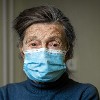


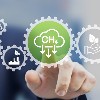
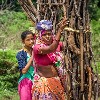
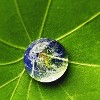
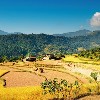

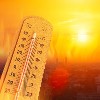

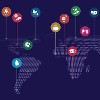
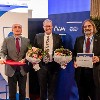




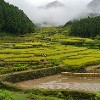



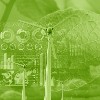

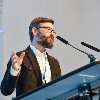






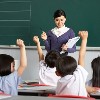
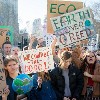

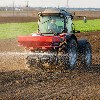
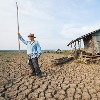

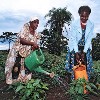


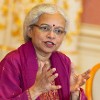
sq_2.jpg)
.jpg)
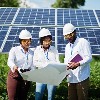
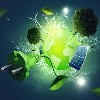
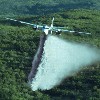
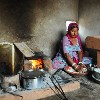
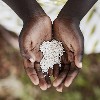
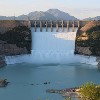
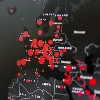
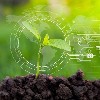
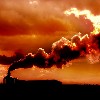

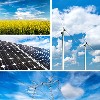
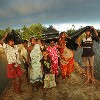



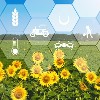


sq.jpg)
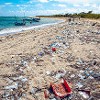
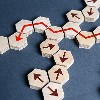
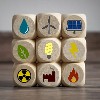
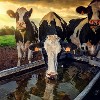




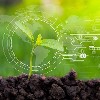



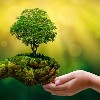
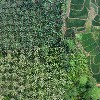


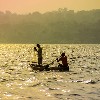


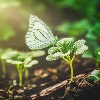
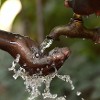



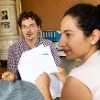




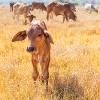
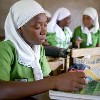
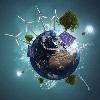

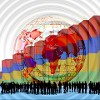

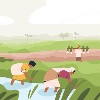
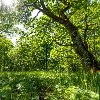
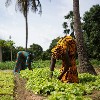
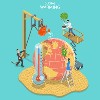




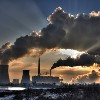


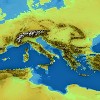





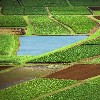


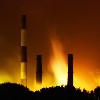



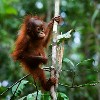


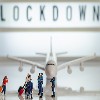
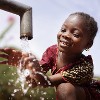
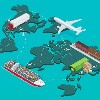
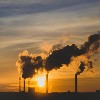


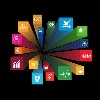





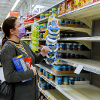

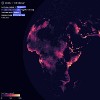

_1.png)
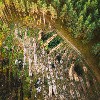
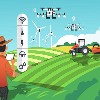
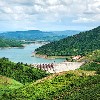

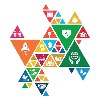

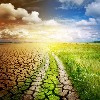


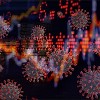


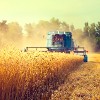

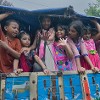
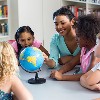
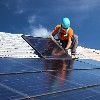

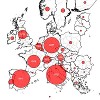
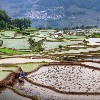

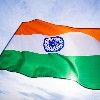
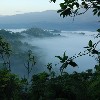

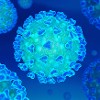
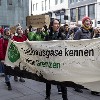
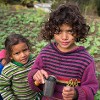




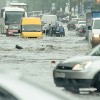

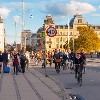
.jpg)

